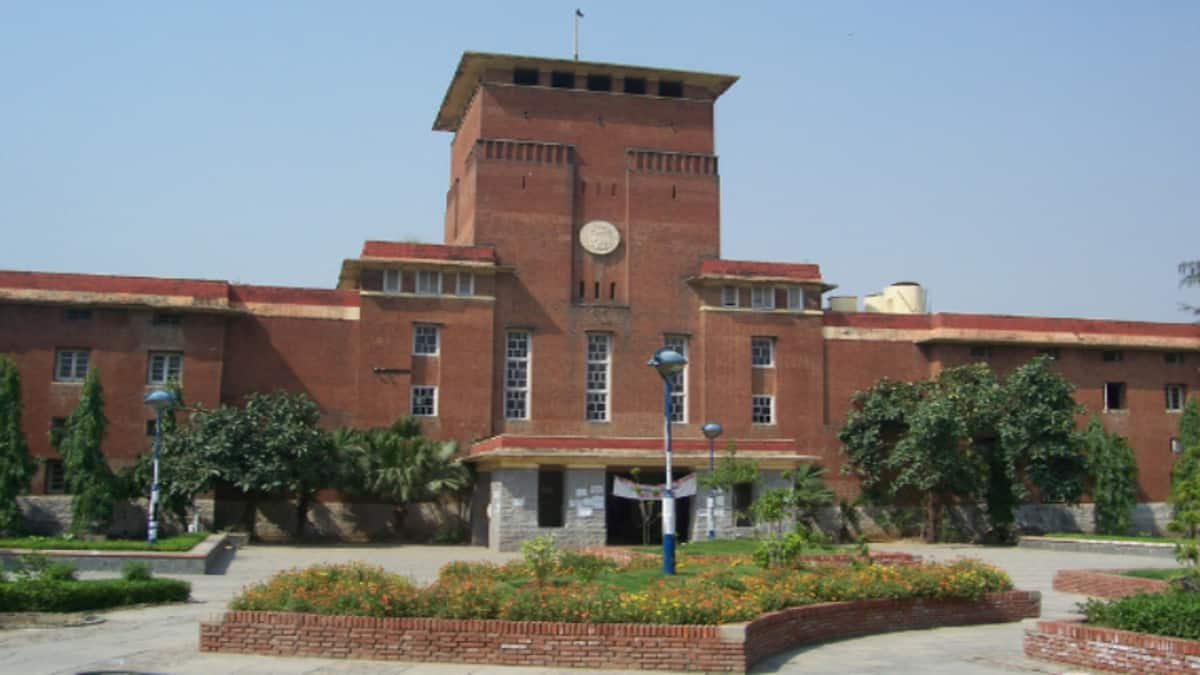DU Psychology syllabus row: Profs allege 'ideological push', other cites 'national interest'
Press Trust of India | May 5, 2025 | 10:26 PM IST | 3 mins read
DU’s Standing Committee for Academic Affairs has recommended changes to the proposed paper Psychology of Peace, objecting to case studies like Israel-Palestine, Kashmir, and India-Pakistan. The chair suggested using Indian epics such as the Mahabharata and Gita instead.
Colleges/Universites Accepting CUET Score
Download list of Colleges/ Universities Accpeting CUET/CUCET Score with Cut-OFFs
Download Now
NEW DELHI: A controversy has erupted at Delhi University (DU) over proposed revisions to the undergraduate psychology syllabus, with some faculty members alleging "political interference" and an attempt to "saffronise" higher education, while others defended the move as necessary to uphold national integrity and incorporate Indian knowledge systems. The Standing Committee for Academic Affairs of DU last Friday recommended changes to a proposed paper titled Psychology of Peace (DSE 13), objecting to the inclusion of case studies such as the Israel-Palestine conflict, Kashmir, India-Pakistan tensions, and issues in the Northeast.
Latest: Check DU PG Seat Allotment 2025 | Vacant Seats for Spot Round 4
DU PG Spot Round 2025: First Cutoff | Second Cutoff | Third Cutoff
DU PG 2025: Third Cutoff | Second Cutoff | First Cutoff
Don't Miss: NIRF DU Colleges Ranking
The committee chair, instead, suggested referencing Indian epics like the Mahabharata and Bhagavad Gita to study peace and conflict resolution. Prof Abha Dev Habib, associate professor of physics at Miranda House and secretary of the Democratic Teachers' Front, alleged that the changes were driven by ideological motives. "We do not want to make a theocratic society. Religious texts will not give us solutions to existing problems like Israel-Palestine," she told PTI.
Interference in academic bodies
In a Facebook video, she further said, "We are very worried about the kind of interference we witness in the Standing Committee and the Academic Council." Referring to the committee's discussions, she said, "A lens of BJP-RSS has been used to scrutinise the entire syllabus. There was heckling of the head of the psychology department. Questions were raised like — why are you teaching nuclear families, why not joint families? Why talk about Palestine or Kashmir?" Habib added, "This is an attack on academic autonomy.
If we want to create global citizens, we cannot design a syllabus aligned to the ideology of the government in power. This is like wanting to create only one kind of people, not thinkers." However, Prof Harendra Tiwari, a professor of commerce at SRCC and member of the Standing Committee and Academic Council, questioned the framing of Indian regions as conflict zones. “Tell me, will anybody accept, who is an Indian, that Kashmir is a disputed land or that the Northeast is a conflict area? Absolutely not. Kashmir is legally amalgamated in India. The Parliament has passed a resolution that even PoK is part of India," he told PTI.
Also readBHU appointed national coordinator for INIs on SWAYAM platform
Debate on conflict themes
Tiwari added, "These (conflicts like Israel-Palestine) do not align with the theme of ‘conflict resolution’, because the conflicts mentioned are not resolved.” He said Indian texts could offer valuable psychological insights. "Why not take examples from Mahabharata or Gita, which are accepted worldwide and discussed even in international universities?" Tiwari opined. The committee also objected to a proposal to include dating apps in a unit on love in another elective paper titled Relationship Science.
Tiwari said, “If you are discussing love and social media, examples like dating apps can be discussed in classrooms but need not be mentioned in the syllabus. The paper's unit was fine, but this part should be elaborated verbally, not in the syllabus.” On another proposal involving a term called the “toolkit approach”, Tiwari questioned its academic legitimacy. “If it is just a term from social media, how can it be part of the syllabus?" he said. The proposal will be discussed in the next Academic Council, and after that, it will be taken up in the Executive Council for the final decision.
Follow us for the latest education news on colleges and universities, admission, courses, exams, research, education policies, study abroad and more..
To get in touch, write to us at news@careers360.com.